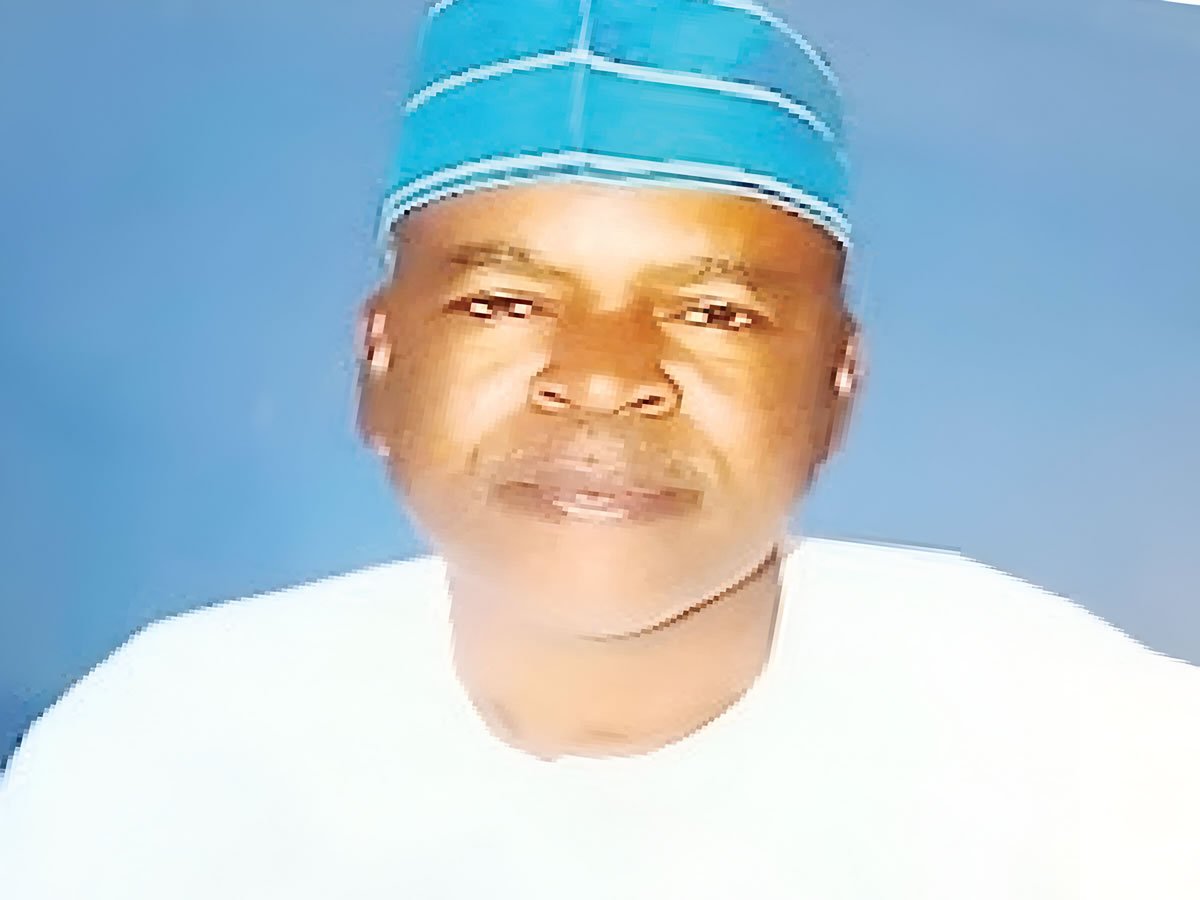Professor Hassan Salihu is of the Department of Political Science, University of Ilorin. He is currently the president of the Nigeria Political Science Association. Professor Salihu recently spoke with journalists on political issues in the country and on other sundry development issues. Biola Azeez brings excerpts.
SOME Nigerians think your association is too quiet on the political affairs in the country. What’s your reaction to that?
Well, people need to make a distinction between our role and the role of the politician. We don’t have the level of power, but we have the mental capacity. Our job is to push out ideas. It’s left for the political class to take the ideas and turn them into policies.
If they fail to do that, honestly, there’s nothing we can do. We can’t go and cane them. We can’t do anything, but at least, let’s say our view so Nigerians who have been following the media will know that on this issue, our association said this. It’s now left for the policymakers to see what they can do with the idea we are pushing out.
As it has been in the Nigerian political system, politicians have started defecting to the ruling party. How do you see this development?
The issue you have just raised can be approached from several angles. The one that is of interest to Nigerians is to know that politics has become a business in Nigeria. The idealism behind politics, which is for development, is no longer fashionable in Nigeria. Every politician you see look at their pocket. And since every business you put your money into, you expect some profit, therefore, politicians keep on dancing around in order to satisfy their personal gains. There is no ideology propelling political activities in Nigeria. Is there any difference between the APC and the PDP or between the Labour Party and the SDP? In terms of ideology, they seem to look alike.
I was just reading a post where someone was saying that under the Second Republic, people knew what the UPN stood for: free education and free health. The NPN stood for housing for all and stuffs like that. But now, we don’t seem to have any of such tendency. What you see is that a man can become a PDP member in the evening and tomorrow morning, he is in the APC. There is no conversion process, nothing about ideology. You can fit into any of the political parties.
When some people in 2013, 2014, 2015 crossed from the PDP to the APC, we didn’t see any qualitative difference in terms of programme, in terms of policy that were being pursued. KwaraState happened to be one of them. Did you notice any difference in the focus of that government because the governor crossed from a political party to another? It was politics as usual. What I’m saying essentially is that we don’t have any ideological consideration propelling our political activities. We have politicians who are not philosophers in any way butare only looking for what to eat. This is coupled with the fact thatthe liberal democracy we are practising seems to be indisciplined. It doesn’t seem to be strong in terms of ethical values. All that matters to liberal democracy is the good health of the capital. So, anything that will make capitalists make more money is welcome in liberal democracy. So, taking the totality of these factors into consideration, nobody should be surprised. In fact, there will be more defections.
The country seems to be drifting towards a one-party state. If that happens, is it good for the health of the nation?
I don’t think we are heading towards one-party state. One-party state is a legal attainment. There is no law in place yet to say every Nigerian should not belong to the APC. So, to that extent, let’s say one-party-dominant state, and not one-party state.
You will recall that in the past, when we had one-party state in Tanzania and all these other places, they came through the legal process. And now there is no law before the National Assembly to say everybody must be in the APC. But rather, we are seeing a tendency where one party is increasingly becoming dominant.
There are moves for a coalition of some political parties. Don’t you think that is capable of dislodging the ruling party?
Coalition or alliance is not new in Nigerian politics. It happened under the First Republic, it also happened under the Second Republic. It’s not new. Coalitions or alliances, by the way, are constitutionally guaranteed. There’s freedom of association. If you are in one party and you think that you are not getting it, there’s room for you to leave the party. But what is significant about the ongoing coalition for those of us who are in the university is that it is not being driven by any concrete national interest. Rather, people are thinking on how to advance their political career. To some of them, if they don’t become the presidential candidate, the coalition has no meaning. Coalitions are just vehicles being prepared for people to actualise their ambitions. If you look at the PDP, the language, the movement within the party suggest that some people are not welcome again.In order to avoid that, they are talking about merger or coalition, but the point is, given our kind of politics, whichis money-driven,resource-driven, where would the money come from to nurture this idea of coalition to fruition? The people in coalition, are they prepared to do politics differently or carry their contradictions and go into these coalitions?
As a political scientist, I would not be able to condem the effort, because it’s allowed. Anything that will make the voices of the people heard, a political scientist should be in support of, but I’m worried that I’ve not seen enough of consideration of national interest. Rather, I am seeing too much of hatred for a particular politician.
What is the fate of average Nigerians in all these? What should they do so that they are not used and dumped as usual?
The idea of citizen engagement is a continuous process. We cannot say because we did it last year, we cannot do it this year. You have a role, my association also has a role in enlightening Nigerians to be careful about the people talking about coalition, about even the current government, and those talking about merger. Make sure they factor in your interests. So far, you do not matter in the process. Whenever you’re called upon, open your eyes and see what is it in the coalition effort that would drive development in a way that will make life more meaningful for you. For now, our association is not saying anyone who is not happy with the APC cannot pull out, but we are saying that in the course of taking that decision, consider the plight of Nigerians. If this party is not attaching importance to the welfare of Nigerians, what is your own level of importance? What level of importance are we expecting from you when you take over power?
If it’s a question of all of you are the same, then the incident of low turnout will continue. Why would people not go out to vote if they think the process is for good? But in this country now, we discover that election is about two years away and nothing matters to the politicians than 2027. And in pursuing their agenda, the consideration they give to the people is just too low.
Talking about consideration for the people, you see governments dump development. How do we address this?
It is because we are practising the wrong democracy. Democracy does not entail asking people to go and vote alone. It also entails monitoring how the mandate you have given to people is being carried out. Meaning that, it is expected, under a democracy system, that those who are in power should find a way to feel the pulse of the people. So many projects have been initiated without any consideration for the plight of the people. If people are battling with 0-0-1, as we say in the university, and you’re coming around to start projects that will cost several billions, they will be looking at you as if you’re not a part of this planet, because you are not addressing their immediate needs. So, that problem has been there: go and vote, and after you have voted people into power, go and sleep. But democracy cannot be operated that way. It entails participation in the process of empowering a government and also entails monitoring what they do, but most Nigerians are only concerned about elections and the leaders are happy about that.
Look around, how many projects have come about due to active participation. So, what is lacking in Nigerian democracy is that the people have been dropped under the bus.
What is the way out?
The way out is to continue giving enlightenment to our people in the sense that they are critical stakeholders. They need not accept the role that politicians have carved out for them in terms just voting and sitting down. No government would give you accountability and transparency unless you demand for them. Unfortunately, the Nigerian populace seems to be docile. They seem not to know their rights and politicians have been doing what they like because of that.
People can organise themselves because demonstration is part of democracy. Writing petition or appeal is also part of democracy. But how many people will be allowed to air their views on any proposed government policy without the police being mobilised to go and disperse them? That should not be the case. By the time you discuss your proposal with me, I’m likely to feel it from another angle and at the end of the day, if you formulate a policy, it would be something that would meet the expectation of the people.But if you drive away people outside the cycle of policy environment, what do you expect? You end up formulating policies for yourself and not for the people.
Look around, look at this bridge for an hour, how many vehicles do you see plying it? I am not saying that we don’t need a bridge but we don’t need this massive bridge. What about its maintenance? The Kwara Hotel that Bamgboye built, Lawal spent money to renovate it, Bukola spent money to renovate it, now we’re spending N17 billion. My idea is, why not dispose of the hotel? There are so many hotels here. But by the time you add big man resort, the cost of this resort and the hotel renovation, we will be talking about N70 billion or more. Are there no other things we can do to generate more revenue for the state? There are so many things that can be done. A slimmer bridge would have been better. You just channel the money elsewhere, probably to support markets or pursue a serious agricultural policy. We would have been seeing the impact by now. But the thinking of our politicians is not always the thinking of the generality of Nigerians.
READ ALSO: Tinubu-Buhari partnership and opposition’s desperate search for validation






